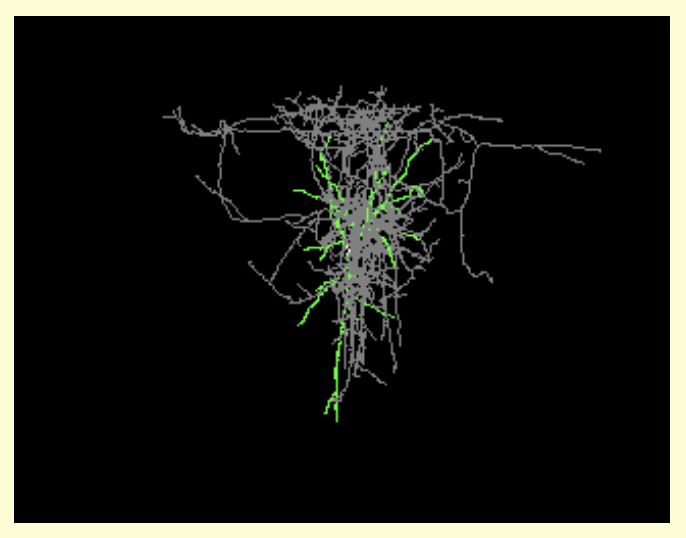URL: http://www.midus.wisc.edu/
Proper Citation: National Survey of Midlife Development in the United States (RRID:SCR_008972)
Description: Data set from a collaborative, interdisciplinary investigation of patterns, predictors, and consequences of midlife development in the areas of physical health, psychological well-being, and social responsibility. Respondents were asked to provide extensive information on their physical and mental health throughout their adult lives, and to assess the ways in which their lifestyles, including relationships and work-related demands, contributed to the conditions experienced. An additional series of questions focusing on childhood queried respondents regarding the presence/absence of their parents, religion, rules/punishments, love/affection, physical/verbal abuse, and the quality of their relationships with their parents and siblings. Respondents were drawn from a nationally representative random-digit-dial sample of non-institutionalized, English-speaking adults, aged 25-74, selected from working telephone banks in the coterminous United States. Those queried participated in an initial telephone interview and responded to a mail questionnaire. MIDUS 2 carried forward MIDUS 1 and enlisted a new sample of African Americans. MIDUS2 also expanded the focus by incorporating detailed neurophysiological assessments on a large subsample in three geographic regions. Data collection largely repeats T1 assessments (45 minute phone interview, 100 page self-administered questionnaire) plus additions in select areas (e.g., cognitive functioning, optimism and coping, life events, caregiving). In addition, MIDUS 2 is using diary techniques to assess daily stressors in a subsample of respondents; conducting cognitive testing through telephone interviews; collecting biological data on a subsample of respondents, including baseline biomarkers as well as laboratory challenge studies, with assessments of salivary cortisol, blood pressure, and heart rate variability; and collecting EEG measures to focus on the central circuitry of emotion, related to affect and depression. Siblings and Twins: Similar data were collected from a survey of 951 siblings of a respondent in the main survey. MIDUS also contains twins data, from a separate national survey unrelated to the main MIDUS survey. From this separate national survey, a total of 1,996 twins agreed to participate. The Twins respondents were given the same assessments as the Main and Siblings samples. Additionally, the Twins sample was asked a series of questions about their birth, shared physical characteristics, childhood and adult relationships with their twin, whether they were dressed alike as children, and whether others experienced difficulty identifying them correctly. Data and comprehensive documentation for MIDUS 1 and 2 are available via ICPSR. * Dates of Study: 1995-2008 * Study Features: Longitudinal, Minority Oversampling, Anthropometric Measures * Sample Size: ** 1995-6: 4,242 (MIDUS 1) ** 2004-6: 7,108 (MIDUS 2) Links: * ICPSR ����?? MIDUS 1: http://www.icpsr.umich.edu/icpsrweb/ICPSR/studies/02760 * ICPSR ����?? MIDUS 2: http://www.icpsr.umich.edu/icpsrweb/ICPSR/studies/04652
Abbreviations: MIDUS
Synonyms: Midlife Development in the U.S.
Resource Type: data set, data or information resource
Keywords: adult, middle adult human, longitudinal, minority, anthropometric measure, midlife development, physical health, psychological well-being, social responsibility, sibling, twin, family relationship, family, health status, life satisfaction, lifestyle, mental health, midlife, social indicator, work attitude, behavior, psychology, social, late adult human, interview, cognitive functioning, optimism, coping, stressful life event, caregiving, questionnaire, african american, relationship, psychological factor, personality trait, positive affect, negative affect, sense of control, goal commitment, neurophysiological assessment
Expand Allis listed by |
Inter-university Consortium for Political and Social Research (ICPSR) |
is related to |
|
has parent organization |
|
has parent organization |
We found {{ ctrl2.mentions.total_count }} mentions in open access literature.
We have not found any literature mentions for this resource.
We are searching literature mentions for this resource.
Most recent articles:
{{ mention._source.dc.creators[0].familyName }} {{ mention._source.dc.creators[0].initials }}, et al. ({{ mention._source.dc.publicationYear }}) {{ mention._source.dc.title }} {{ mention._source.dc.publishers[0].name }}, {{ mention._source.dc.publishers[0].volume }}({{ mention._source.dc.publishers[0].issue }}), {{ mention._source.dc.publishers[0].pagination }}. (PMID:{{ mention._id.replace('PMID:', '') }})
A list of researchers who have used the resource and an author search tool
Find mentions based on location

{{ ctrl2.mentions.errors.location }}
A list of researchers who have used the resource and an author search tool. This is available for resources that have literature mentions.
No rating or validation information has been found for National Survey of Midlife Development in the United States.
No alerts have been found for National Survey of Midlife Development in the United States.
Source: SciCrunch Registry





